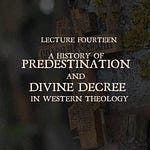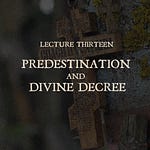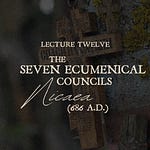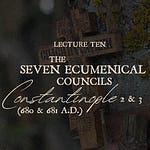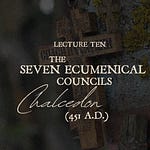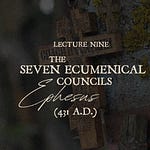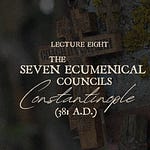These are transcripts from a spoken lecture. The audio is attached to this lesson. If there is any confusion from reading the transcript, please refer to the audio for clarification.
So this is the last session that we’ll be doing together here on this series. The last two sessions, we began looking at the development of the doctrine of predestination, divine decrees in the Latin West. I mentioned when we started this journey that we were focusing there, not so much because we were interested in the doctrine of predestination. That wasn’t really the focus. What we were more interested in is how that doctrine began to affect the ways in which the West, more generally, saw God, world interactions, how they saw divine transcendence, how they saw the ways in which God relates to us, how they understood grace.
And the reason we were particularly interested in that is because, as I pointed out in our last lecture, the ways in which the doctrine developed, God became more and more transcendent, more and more removed from the world. His decrees having less and less to do with us and as we are in time, until in modernity, there arose the question of whether or not we are, in fact, just part of a clockwork that is unfolding according to Divine Decree, or something akin to a computer program that is unfolding, something that’s been laid out and set out, according to a maker off an eternity, but that maker never, in fact, invades the clock. And that gave rise, ultimately, in modernity, to the rise of deism. And then deism gave rise to atheism, as many wondered whether or not maybe there is no clock maker outside of the clock itself, and we’re merely part of an abandoned machinery alone in this universe.
And as I pointed out, the reason that was particularly important is because how we see God, how present he is, or how absent he is, how accessible he is or how inaccessible he is, how trustworthy he is, whether we can trust His goodness or whether his goodness becomes suspect. All play out in how we see God, in how we pray, in how we worship, how much we are willing to give ourselves over to God and serve him out of either love or perhaps fear or perhaps not at all.
Now, today, what I want us to do is look at the contrast between this western picture of the evolving understanding of divine predestination and decrees in the light of the Eastern fathers, seeing the contrast between east and west on a variety of topics, and as we’ll see, there are considerable differences in the doctrine of God and in the doctrines of how God and world interact.
So when we look at the West in contrast with the Eastern fathers, we’ll begin to see a variety of things come to light that are significantly different. The doctrine of the Holy Trinity, the doctrine of divine simplicity, the doctrine of the essence-energies distinction, a critical distinction in the east that we actually do not find in the West, the doctrine of divine freedom, and the question of whether God has free choice, the divine attributes, and what’s even meant by that term, knowledge of God. How do we know God, and what does it mean that we know God? And then, in keeping with the essence-energies distinction, the meaning of divine grace, how we see time and eternity, how we see divine providence and God’s goodness as a subset or an extension of that Providence, or more accurately, perhaps Providence as an extension of God’s goodness, then even things like predestination.





